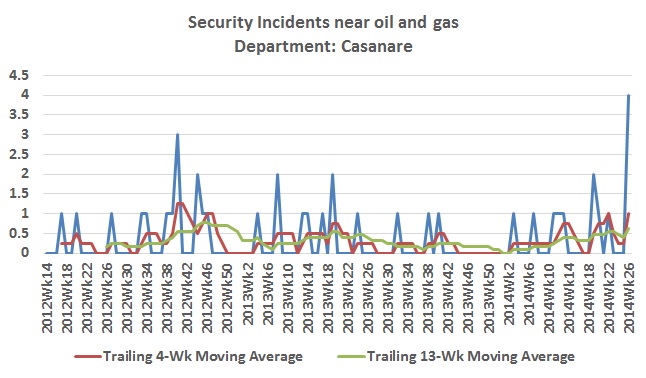The peace process received words of support from some big names this week, from former world leaders to a multi-denominational group of religious leaders, but the security conditions needed on the ground to continue with the talks receives its fair amount of questions at home.
Gran Tierra (NYSE:GTE) says its current COO Shane O’Leary will step down to retire, and will be replaced by Duncan Nightingale, the current president of Gran Tierra Colombia, with the Colombian senior operations manager Adrian Coral taking Nightingale’s position.
The Minister of Mines and Energy Amylkar Acosta says the government is putting the contraband fuel business in its cross hairs and promises to go after the mafia leading this illicit industry.
The Ministry of Mines and Energy (MinMinas) has prioritized both an expansion of gas coverage and sought to protect that market against increased demand due to the El Niño weather phenomenon, but it has not been enough to guarantee supply for thermal generators.
We think average realized Colombian oil prices could be up as much as 3% when 2Q14 results are reported because Brent and especially WTI have risen consistently.
Ecopetrol (NYSE:EC) goes to school, calls for young talent and names a queen, while Parex (TSX:PXT) shows up with an ambulance and Amerisur helps medical checkups. These and other stories related to Corporate Social Responsibility.
The ELN guerrilla staged a devastating attack on the Coveñas/Caño Limon pipeline on Sunday which is leading many to question the government’s strategy of holding peace talks without guarantees of a cease fire.

The department of Casanare has felt an uptick in attacks which have included selective targeting of individuals, burned tanker trucks and leaflets threatening an “armed strike” by the ELN guerrilla as its 50 year anniversary approaches on the 4th of July.
The National Authority of Environmental Licenses (ANLA) has placed “preventative measures” on a water disposal operation for the Rancho Hermoso project in Casanare, which is operated by Canacol Energy (TSX:CNE) in partnership with Ecopetrol (NYSE:EC).
Without really planning it this way, this month’s report has several articles on the same topic: the relationship between the industry and the community.